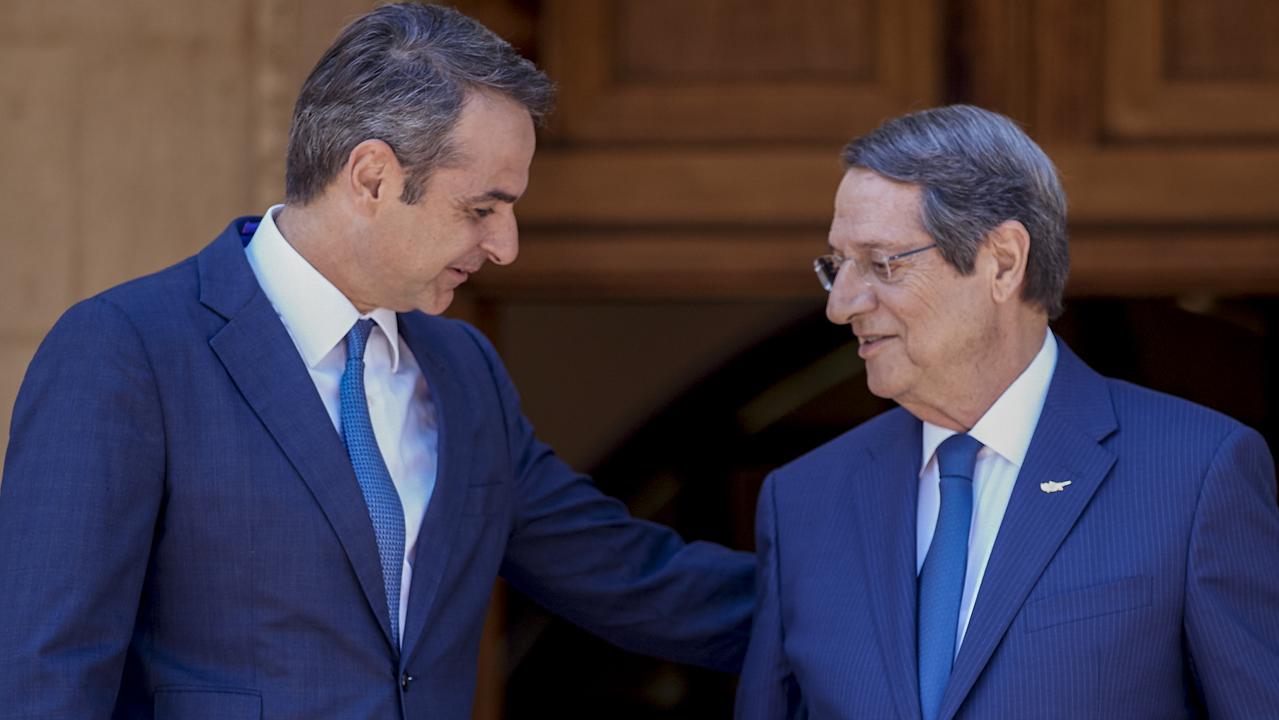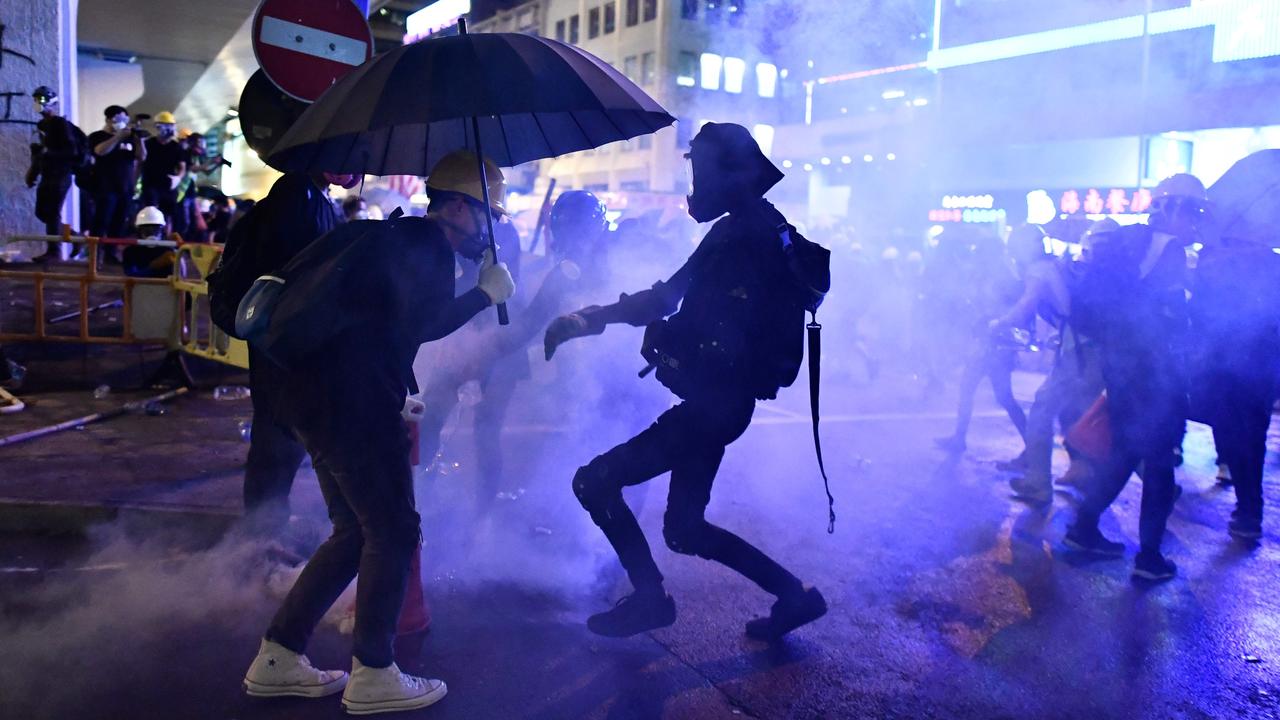
But the message was thoroughly combative.
The congress is giving the world a glimpse at what kind of a person has become, in the words of the cover of this week’s Economist magazine, “the world’s most powerful man”.
The title of the speech involved “securing a decisive victory”. Xi stressed the importance of a “powerful military”.
He uttered the word “army” 86 times, almost double the usage of president Hu Jintao at his last congress speech a decade ago. He used “China” an extra 35 per cent, “party” 30 per cent more. But “economy”, “reform”, and “development” slipped out of vogue.
The picture of China’s entire power elite lined up on the stage behind him was eloquent. They may not all love him, but all the big families and factions have decided since the Soviet Union’s downfall that in pubic at least they must all line up in solidarity with the leader.
China Daily said the delegate credentials committee had described the congress as “highly representative”. But it was a very masculine picture on the stage on Wednesday. Of the 264 people there, just 31 were women.
They shared a desire to be seen doing the right thing. Which today means learning from Xi. They had copies of his speech on the tables in front of them and most frequently wrote notes as he spoke, as if they were students at a university lecture listening to their professor.
Yesterday the congress broke into regional party groupings, in which delegates responded to the leader’s great speech.
All voices were warmly supportive of course, but those of Xi’s close political allies — who have risen to take all core roles alongside him — were raised in especial praise for the chairman. The word for “president” used for foreign leaders is not the same, in Chinese, as that used under the Chinese party-state for its own leader, whose title is closer to “chairman”.
The new party secretary of Beijing, Cai Qi, described Xi as a “wise leader … who is the overall designer of the opening-up and reform of a new era”.
Chen Min’er, viewed by some as Xi’s successor when he chooses to step down — probably in a rather remote future — leads the delegation of Chongqing, the massive municipality that has nurtured two potential rivals to Xi viewed as especially noxious, Bo Xilai, already jailed for life, and Sun Zhengcai, expelled from the party a fortnight ago and slated now for a long sentence.
Chen instructed the cowed delegation, stripped just before the congress of five comrades charged with corruption, that “the historic achievements of the past five years are the result of the correct leadership of the party under Xi Jinping as the Core”. He said Xi “provides the party a strong leadership power, through his faith, his upholding what is true, his personality”, while Wednesday’s speech “displays the superb wisdom of the party, centred on Xi Jinping, reflecting the glory of Marxist truth, full of a strong sense of responsibility and of positive energy”.
His vote for Xi to continue as party general-secretary would appear to be in the bag, then.
The focus on the speech in China has hinged around the unwieldy key phrase, “Xi Jinping Thought on Socialism with Chinese Characteristics for a New Era” — which really means enshrining the direction he is taking the party and thus the nation.
The philosophy around it remains opaque. Xi said in the speech: “The era is the mother of thought; practice is the fount of theory.”
However long people may discuss and debate such statements — and they probably will, at party meetings around China over the next few years — they still won’t make much more sense.
They don’t need to, really. What counts is what’s happening on the ground, where Xi is seeking to ensure the government is more responsive to the party, and the party at every level is more responsive to him.
He is shoring up the party against the kind of downfall suffered by its Soviet uncle. He is shoring up popular support by pushing the economy — already straining to fulfil expectations of continuing rapid, stimulated growth, as debt and lower productivity act as brakes — to complete its doubling by 2020.
He is shoring up national pride by striding the world as the kind of globally engaged leader, a role his US counterpart shuns.
Previous hopes or predictions for China must be shed. Representative democracy is no longer even on the horizon.
Instead there is “consultative democracy”, through which China’s party-led institutions consult the people in their own way and respond accordingly.
The notion of “the market playing a decisive role” in the deployment of assets, in determining risk, in the economy as a whole — a phrase central to the Third Plenum or central committee meeting of the party only four years ago — is now quashed. The party continues to know best.
Xi talked of China leading the global online revolution — with artificial intelligence the new phase.
But his ever-tightening controls on the internet, and of public discussion generally in China, severely constrain those inventive, creative researchers who might make such breakthroughs, except in areas such as facial recognition that help the “security state”.
Xi told the congress how he and the party he controls will satisfy people’s natural desire for “a better life”, “a happy life” — a great goal, but one that in the 21st century requires a more holistic view of development and of people’s aspirations for their lives generally, than rescuing them from poverty in a material sense. This worthy goal of the past has been substantially achieved.
Xi does not provide a convincing picture of what comes next, apart from closer controls.




Chinese President Xi Jinping delivered his epic and epochal 3½-hour speech to open the Communist Party’s 19th five-yearly congress, in an even and pleasant tone. No ranting, no raving, scarcely even a scripted pause for applause.